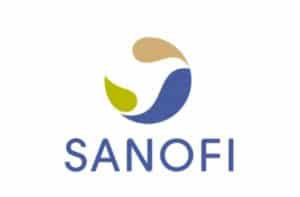Sanofi swoops on Pfizer’s insulin plant
pharmafile | June 9, 2009 | News story | Manufacturing and Production, Research and Development | Sanofi-Aventis
Sanofi-Aventis will pay 30 million euros (£26 million) for a manufacturing plant in Germany operated by Pfizer in a deal that marks the end of the latter's ambitions in inhaled insulin therapy.
The Diabel facility – said to be one of largest insulin production facilities in the world – was originally built by Sanofi-Aventis and Pfizer as part of their joint venture for the production of now-defunct inhaled insulin therapy Exubera.
Pfizer took overall control of the facility after buying Sanofi-Aventis' share in the product in 2006 for $1.3 billion, but Exubera never lived up to its early promise as an alternative to injections for diabetes patients.
Diabetics proved reluctant to switch to the inhaled product because of dissatisfaction with the bulky Exubera inhaler, lingering concerns about safety as well as reluctance by insurers to reimburse the product.
Pfizer decided to pull Exubera off the market at the end of 2007 on the back of lacklustre sales, leaving it with manufacturing capacity for insulin standing idle.
The company closed down its US plant for insulin in Terre Haute, Indiana, in October 2007, and forged an agreement to sell the Diabel facility to US company Mannkind in March of this year.
However, Sanofi-Aventis had retained a step-in clause in its buy-out contract in case it wanted to re-assume control of the Frankfurt facility. Its decision to exercise that clause has put paid to Mannkind's ambition to secure the unit.
In a statement, Sanofi-Aventis' general manager in Germany Martin Siewert said that the plant would add to its own production units in Frankfurt and create "the largest insulin capacity in the world".
He said strong demand for Sanofi-Aventis' insulin products, and particularly the long-acting insulin analogue Lantus (insulin glargine), made a compelling case to boost production capacity. Sales of Lantus were up over 27% in the first quarter of this year to reach 747 million euros, and it is currently the biggest-selling insulin brand in the world.
Analysts said the news was not terrible for Mannkind, as the US firm still walks away with a quantity of bulk insulin to serve its initial production requirements. It will likely be able to source production elsewhere if its Afresa inhaled insulin product, currently filed with the US Food and Drug Administration (FDA), is approved.
Yesterday Mannkind revealed that it was starting development of a new whistle-sized inhaler system for Afresa designed to be more discreet than the current inhaler, which is around the same size as a mobile phone.
Related Content

Sanofi name change sees Aventis dropped
Sanofi-Aventis will now just be known as Sanofi after the French pharma company’s shareholders agreed …
Sanofi signs malaria research alliance
Sanofi-Aventis has signed a research deal with the Medicines for Malaria Venture charity. They will …

Plavix sales plummet in England
GP prescriptions for Plavix saw a significant drop in England last year as doctors opted …






